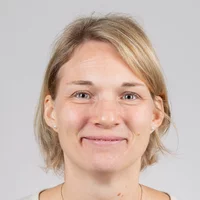This page lists software and platforms that are actively developed in the LMS laboratory (either with LMS leading the development, or as part of international collaborations).
AiiDA
AiiDA is an open-source (MIT license) Python infrastructure to help researchers with automating, managing, persisting, sharing and reproducing the complex workflows associated with modern computational science and all associated data.
AiiDA is built to support and streamline the four core pillars of the ADES model: Automation, Data, Environment, and Sharing.
Key features include: a workflow engine to manage multiple codes both on local and remote computers; high-throughput support, scaling to tens of thousands of processes per hour; automatic tracking of data provenance in extensive provenance graphs that preserve the full lineage of all data; an advanced query language enabling fast graph queries on millions of nodes; a plugin interface to support any computational code, data type, scheduler, connection mode, etc. (see public plugin repository); a native HPC interface to directly interact with remote supercomputers, supporting with many schedulers out of the box; fully supporting open science, allowing to export both full databases or selected subsets to be shared with collaborators or made available and browsable online (e.g. on Materials Cloud Archive).
Contact: MSD group
AiiDAlab
AiiDAlab is the web environment for AiiDA, to run complex and robust AiiDA workflows with tailored lightweight web applications directly in the browser.
AiiDAlab enables computational scientists to package scientific workflows and computational environments and share them with their collaborators and peers. By leveraging the AiiDA workflow manager and its plugin ecosystem, developers get access to a growing range of simulation codes through a python API, coupled with automatic provenance tracking of simulations for full reproducibility. Computational workflows can be bundled together with user-friendly graphical interfaces and made available through the AiiDAlab app store. Being fully compatible with open-science principles, AiiDAlab provides a complete infrastructure for automated workflows and provenance tracking, where incorporating new capabilities becomes intuitive, requiring only Python knowledge.
Contact: MSD group
CP2K
CP2K is a quantum chemistry and solid state physics software package that can perform atomistic simulations of solid state, liquid, molecular, periodic, material, crystal, and biological systems.
CP2K provides a general framework for different modeling methods such as DFT using the mixed Gaussian and plane waves approaches GPW and GAPW. Supported theory levels include DFTB, LDA, GGA, MP2, RPA, semi-empirical methods (AM1, PM3, PM6, RM1, MNDO, …), and classical force fields (AMBER, CHARMM, …). CP2K can do simulations of molecular dynamics, metadynamics, Monte Carlo, Ehrenfest dynamics, vibrational analysis, core level spectroscopy, energy minimization, and transition state optimization using NEB or dimer method. See detailed overview of features for more information.
CP2K is written in Fortran 2008 and can be run efficiently in parallel using a combination of multi-threading, MPI, and CUDA, e.g. at CSCS. It is freely available under the GPL license. The MMM group maintains the Goedecker-Teter-Hutter (GTH) pseudopotential database and the GitHub repository for CP2K production containers on Docker Hub.
Contact: MMM group
koopmans
koopmans is an open-source package for performing and automating Koopmans functional calculations
Over the past fifteen years, researchers at PSI and elsewhere have developed Koopmans functionals, a computationally efficient approach for predicting spectral properties with an orbital-density-dependent functional framework. The koopmans package contains all of the code and workflows needed to perform Koopmans functional calculations and obtain reliable spectral properties of molecules and materials.
Contact: LMS lab
Materials Cloud
Materials Cloud is a web platform built to enable the seamless sharing and dissemination of open resources in computational materials science, offering educational, research, and archiving tools; simulation software and services; and curated and raw data. These underpin published results and empower data-based discovery, compliant with data management plans and the FAIR principles.
On the Materials Cloud you can access cloud or redeployable simulation services (from AiiDAlab turnkey solutions, to the Quantum Mobile virtual machine and the AiiDA registry of plugins and workflows); educational material, tutorials and lectures; and you can share your scientific results to make them comprehensive, downloadable, browsable and repurposable. Materials Cloud includes five main sections:
- LEARN: Lectures and tutorials in computational materials science;
- WORK: Simulation tools and services - in the cloud or on your computer;
- DISCOVER: Curated research data with tailored visualizations;
- EXPLORE: Interactive browser for AiiDA provenance graphs;
- ARCHIVE: An open-access, moderated repository for research data in computational materials science.
Contact: MSD group
Quantum ESPRESSO
Quantum ESPRESSO is an integrated suite of open-source computer codes for quantum-mechanical simulations of materials using state-of-the-art electronic-structure techniques, based on density-functional theory (DFT), density-functional perturbation theory (DFPT), and many-body perturbation theory (MBPT), within the plane-wave pseudopotential and projector-augmented-wave approaches. The acronym ESPRESSO stands for opEn Source Package for Research in Electronic Structure, Simulation, and Optimization. It is freely available to researchers around the world under the terms of the GNU General Public License. It is optimized to run on a variety of different platforms, from laptops to massively parallel architectures, using native mathematical libraries (LAPACK and FFTW) and a hierarchy of custom parallelization layers built on top of MPI. Quantum ESPRESSO owes its popularity to the wide variety of properties and processes it allows to simulate, to its performance on an increasingly broad array of hardware architectures, and to a community of researchers that rely on its capabilities as a core open-source development platform to implement their ideas.
At the LMS lab we are developing and contributing to the following components of Quantum ESPRESSO:
- PW: a code for solving Kohn-Sham DFT equations, including extensions to DFT+U and DFT+U+V
- HP: a code for computing on-site U and inter-site V Hubbard parameters using DFPT
- KCW: a code for computing screening coefficients for Koopmans functionals
- PHonon: a code for computing phonons, electron-phonon coupling including Hubbard corrections
- turboEELS: a code for computing electron energy loss spectra (plasmons)
- turboMagnon: a code for computing inelastic neutron scattering spectra (magnons)
- XSpectra: a code for computing X-ray absorption near edge structure spectra including Hubbard corrections
- ENVIRON: It is an independent module to handle environment effects that is interfaced with Quantum ESPRESSO
Contact: LMS lab
Wannier90
Wannier90 is an open-source code (released under GPLv2) for generating maximally-localized Wannier functions and using them to compute advanced electronic properties of materials with high efficiency and accuracy.
Many electronic structure codes have an interface to Wannier90, including Quantum ESPRESSO, Abinit, VASP, Siesta, Wien2k, Fleur, OpenMX and GPAW; and there are several post-processing codes that are able to use the output of Wannier90 for further analysis and calculation.

